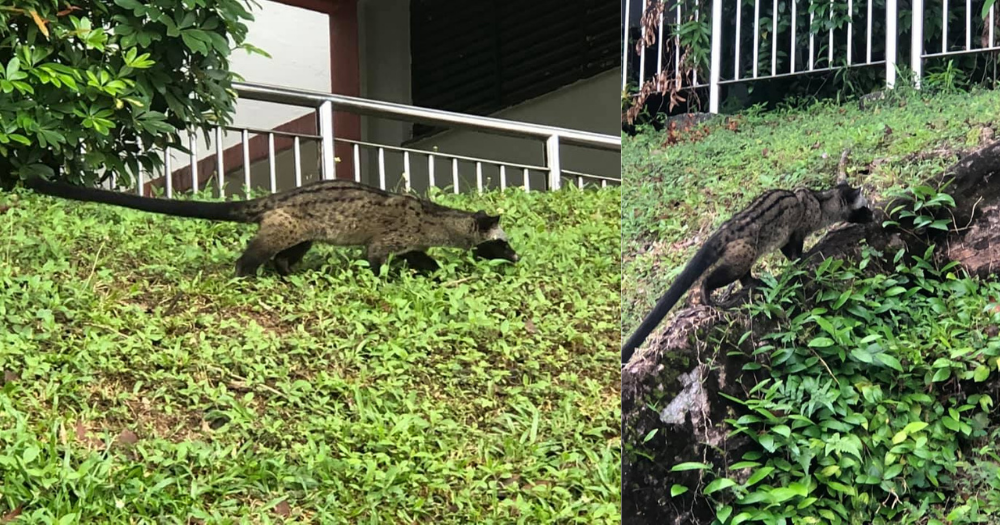A common palm civet was caught taking a morning stroll at Stirling Road on Dec. 19, 2020.
Given that it is a nocturnal creature, the sight of an active civet in the day has taken many nature lovers by surprise.
Civet sighted at Stirling Road during daytime
With stealthy steps, the civet appeared to forage on the grass patch of a slope near a bus stop.
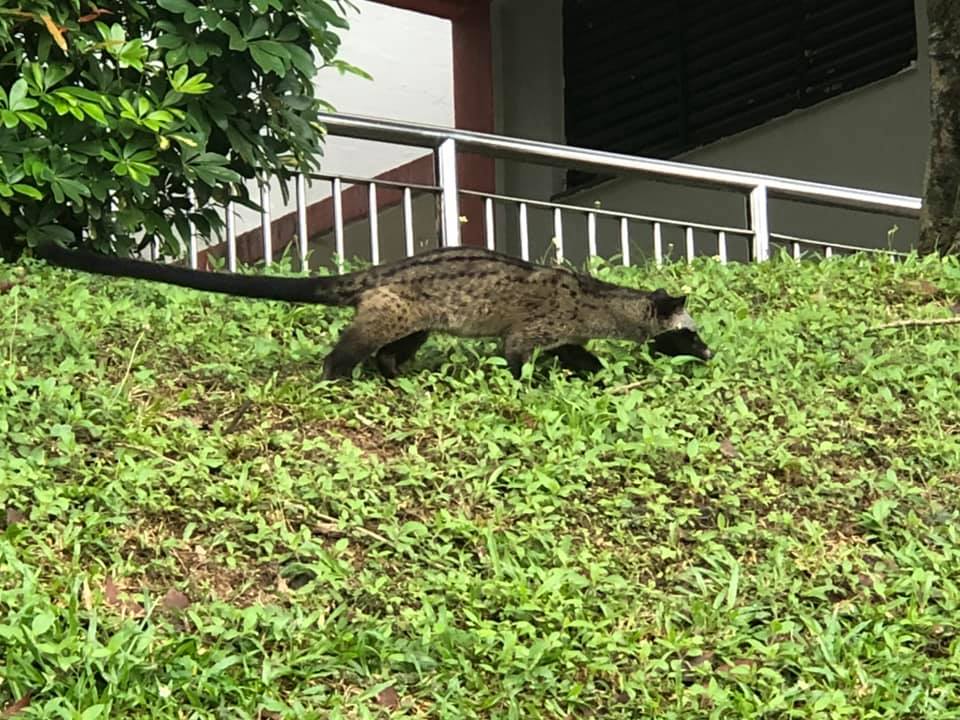 Photo courtesy of Lim Kian Lam.
Photo courtesy of Lim Kian Lam.
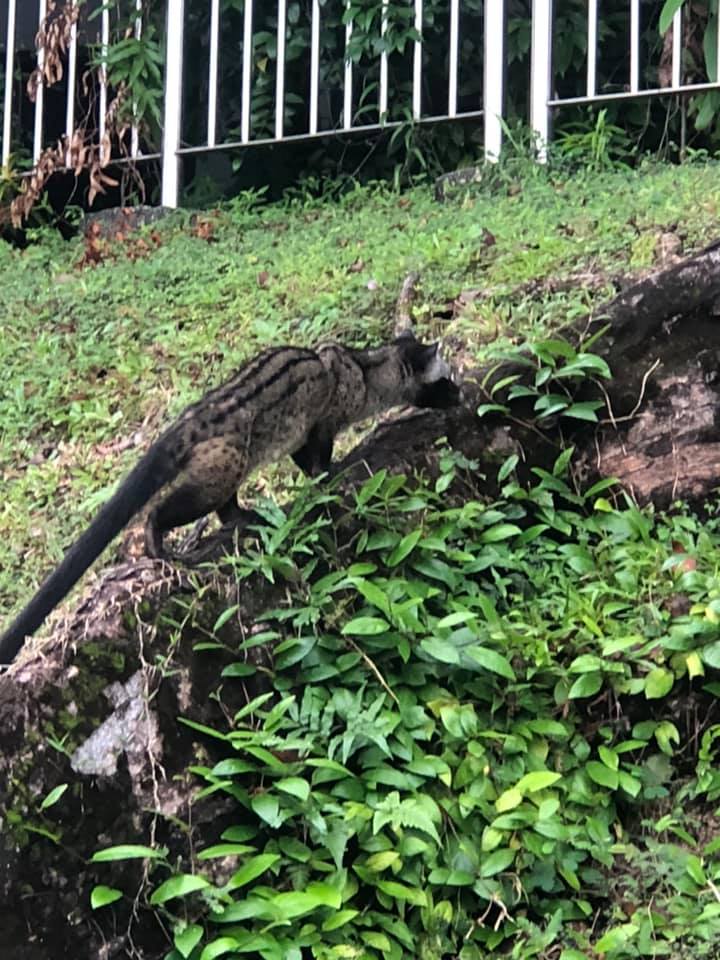 Photo courtesy of Lim Kian Lam.
Photo courtesy of Lim Kian Lam.
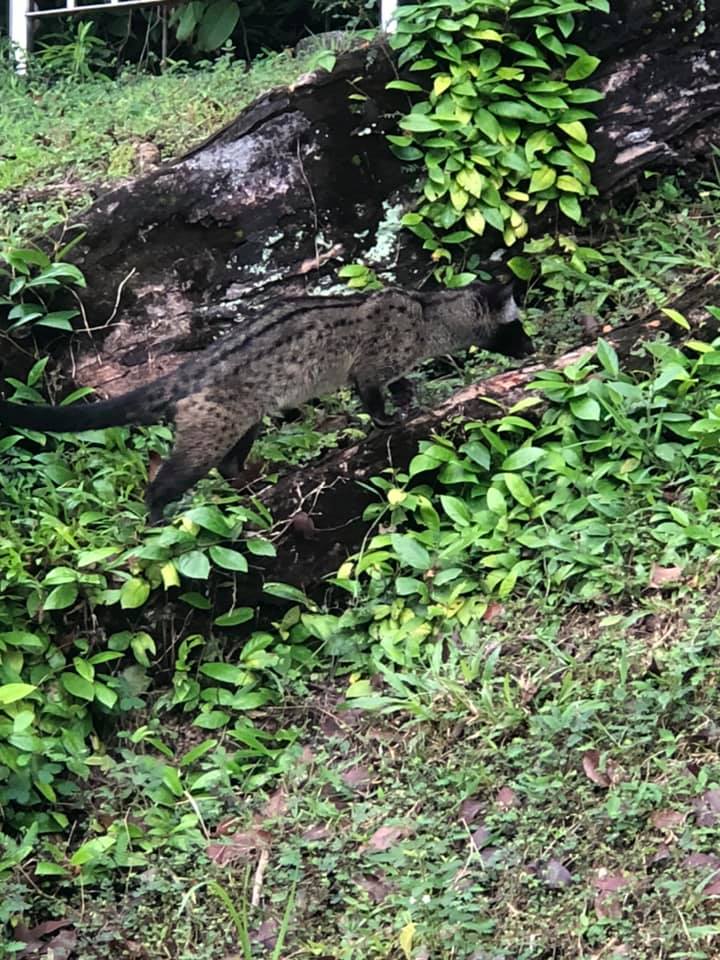 Photo courtesy of Lim Kian Lam.
Photo courtesy of Lim Kian Lam.
Lim Kian Lam who caught this rare sight of the common palm civet for the first time posted photos of it on Facebook in hopes of verifying his sighting.
Speaking to Mothership, Lim said that he spotted the civet coming down from a tree.
It was about the size of a cat with a longer tail, he described. From the way it walked, it appeared that the civet had injured its right hind leg.
Here's a short clip that Lim took:
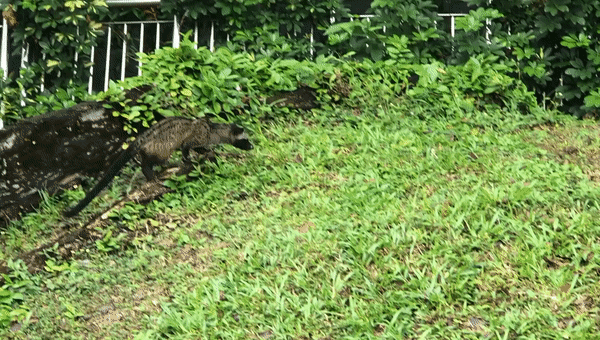 Video courtesy of Lim Kian Lam.
Video courtesy of Lim Kian Lam.
Not a cat
Common palm civets are known as Toddy cats or Musang (in Malay).
They are not cats even though they are often labelled as such.
Civets are actually more related to hyenas and mongooses.
Common palm civets are one of the four types of civets that can be found in Singapore.
They can be found in both forested and urban areas, usually occupying tree cavities.
Here's one adorable critter sighted in a tree hollow at Bidadari Cemetery in 2015:
 Video via wiki.nus from video taken by 13seaeagle/YouTube.
Video via wiki.nus from video taken by 13seaeagle/YouTube.
Being nocturnal, they are usually active after dark between 6pm and 4am, according to wiki.nus.
Important seed disperser
Common palm civets have a mixed diet that consists of fruits, leaves, insects, small mammals and reptiles.
Some of their favourite food found in the wild here include mangoes, bananas, chikus, fruits from the Fishtail Palm and seed pods from the Rain Tree.
Because of their diet and ability to travel further than other animals, they are important seed dispersers in the wild.
Some seeds can only germinate after passing through the digestive system of the civets.
This is why civets play an important role in restoring degraded forests in Singapore.
What do you do if you encounter a civet?
If you happen to see a civet, here is some advice from the National Parks Board (NParks):
Do keep a safe distance and observe them from afar.
Like other wild animals, civets are shy and will typically stay out of sight. Do not make the civet feel cornered or provoked as that can cause them to attack you in self-defence.
If you find civets near the vicinity of your property, do keep away any leftover cat or dog food.
If you see baby civets on your property, do not touch them as that might prevent the mother civet from picking them up resulting in the babies being abandoned by their mother.
The mother civet will respond to its babies when it's nearby.
Two to three months after birth, the civets will follow their mother out to forage and will leave your property.
If you need help, here's a 24-hour hotline to NParks' Animal Response Centre: 1800 476 1600.
Or you can contact 24-hour Acres wildlife rescue hotline at 9783 7782.
We deliver more stories to you on LinkedIn
Top image courtesy of Lim Kian Lam
If you like what you read, follow us on Facebook, Instagram, Twitter and Telegram to get the latest updates.
